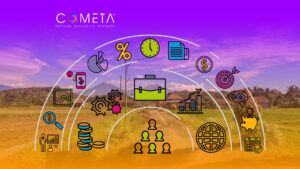When we think on Systematization of experiences, we do not associate it with knowledge production. Instead, we see it as a tool for documenting, information gathering, and collecting facts in an orderly manner.Information gathering is related to collecting data and official records that prove facts. However, for civil society organizations, their experiences are an invaluable and permanent source of knowledge. Therefore, systematizing experiences becomes a key tool for continuously transforming our practices.
Amalinalli Martínez Paredes, Jr Consultant, Linkedin Profile.
Why is the systematization of experiences helpful for civil organizations?
Systematizing experiences as knowledge production is much more than documenting; it implies reflecting on the practice and its function. This allows us to generate knowledge based on our reality, transforming the experience into an added value that guides us toward more effective and transformative actions.
Although documenting is essential for recording actions and impacts, in the context where civil society organizations operate, the systematization of experiences goes one step further. Its contribution lies in integrating critical reflection that invites us to question processes, adapt them, and improve practices based on the analysis of accumulated experience.
This knowledge production helps to identify successes, challenges, and the conditions of daily practices, creating opportunities that strengthen advocacy strategies and increase their impact.
The systematization of experiences is especially relevant because our daily activities generate invaluable practical knowledge for our organizations and, likewise, for others who are experiencing processes or challenges similar to ours.
This knowledge allows us to interpret reality closely and constantly, identifying problems, resources, and areas of opportunity. Therefore, systematizing experiences becomes a key tool to strengthen our processes and strategies. In addition, systematizing experiences fosters knowledge exchange, making it a strategic and fundamental component, mainly from a learning perspective.
These tools become even more critical for civil society organizations in hostile or increasingly restrictive contexts. Knowing our successes and mistakes and those of other organizations allows us to design more solid strategies to face our challenges.
What should we consider when systematizing experiences as knowledge production?
We recognize that systematizing experiences is a valuable tool for civil society organizations. However, dedicating time to this process can be challenging. Therefore, it is essential to understand it as a tool for institutional learning. First, we must define the purpose of systematizing a specific experience. In other words, what we want to systematize for:
- Do we want to create an institutional memory because we celebrate a milestone or anniversary?
- Do we want to systematize that experience because we were successful and we can replicate it?
- Do we want to do it because we failed and do not want to repeat our mistakes?
- Do we want to share what we have learned about a particular experience because it may be helpful for other organizations?
The results of systematizing experiences are beneficial for organizations. They can become tools for regular use, resources to disseminate their pathway, or even didactic materials. Systematizing can also identify lessons learned from unfulfilled objectives or failures, turning them into didactic resources for continuous improvement and progress.
Once we set the goals for systematizing experiences, we can define the required methodology and the desired outcome. For example:
- Anniversary reports
- Toolboxes
- Microsites
- Guides or manuals
Learning processes, such as systematizing experiences, are key tools that strengthen our organizations. They help us preserve a historical memory of our work, reflect on our successes, and learn from our mistakes. In addition, sharing our experiences can be helpful for organizations facing similar challenges.
If you think about systematizing an experience in your organization, do not hesitate to contact us.





